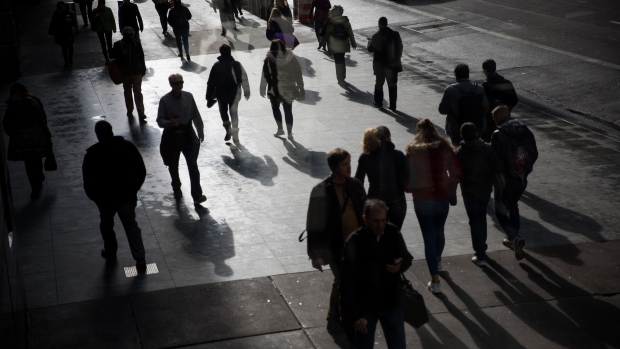Jan 6, 2020
U.S. bank stocks slip as analysts highlight election and rules risks
, Bloomberg News

Bank stocks extended this year’s decline in early Monday trading as several analysts made calls that largely focused on rising risks, including election-year hesitancy and questions about new accounting rules.
The KBW Bank Index fell as much as 1.3 per cent to its lowest since Dec. 12, with all index members save State Street Corp. slipping. Stocks that declined following downgrades on Monday included heavyweights JPMorgan Chase & Co., Citigroup Inc. and Morgan Stanley. The index drop follows a 32 per cent rally in 2019, which strengthened into the close of the year alongside mounting optimism.
Now, bank investors may be overlooking key risks. They include the U.S. presidential election and new rules known as CECL, or Current Expected Credit Loss, Wolfe wrote in a note looking ahead to 2020 and downgrading JPMorgan, saying its rally outpaced peers.
“It is easy to get caught up in the recent euphoria as the market continues to reach new highs but we see a number of risks as well that have not garnered adequate consideration,” analysts led by Steven Chubak wrote. He said that election uncertainty may dampen capital markets activity, CECL may trigger more volatility in bank provisioning and some banks may see “weakening payout capacity.”
Despite some reluctance, Chubak cut JPMorgan as “we simply could not justify recommending putting more money to work” with a multiple premium that’s reaching post-crisis highs, earnings-per-share momentum that’s at the low end of its peers and elevated CECL risk. “The current multiple gap is simply too wide,” with better relative value in Citigroup and Bank of America Corp., he said.
While Chubak sees the least upside potential at money center banks and M&A firms, he also cut Evercore Inc. because of risks to 2020 consensus estimates. On Monday, shares fell as much as 2.7 per cent to the lowest since October.
At the same time, Chubak sees the most upside at regional brokers including LPL Financial Holdings Inc., Raymond James Financial Inc. and Stifel Financial Corp.; universal brokers Goldman Sachs Group Inc. and Morgan Stanley; and trust banks BNY Mellon Corp. and State Street Corp. He also raised TD Ameritrade Holding Corp. as “merger economics are not fully priced in,” and upgraded Lazard Ltd. on a strong advisory backlog.
In December, KBW said that the Fed’s expanding balance sheet was helping banks, including BNY Mellon and State Street.
Separately, Deutsche Bank analyst Matt O’Connor wrote that he’s taking a “more cautious view” on banks. In a note combining his fourth quarter and 2020 outlooks, O’Connor downgraded Citigroup, Morgan Stanley and Huntington Bancshares to hold from buy.
Barclays analyst Jason Goldberg offered a different take on the biggest banks, cutting Wells Fargo & Co., as efficiency gains are likely already reflected in share prices and upgrading BofA due to “significant improvement” in its consumer banking franchise.
Goldberg’s price targets into 2020 imply gains of about 20 per cent, as U.S. large-cap bank stocks “continue to have the ability to rise and outperform the market,” he wrote. The sector may also prove to be “more defensive than investors appreciate” if the economic backdrop is more challenging than Barclays’ base case, he said.
“Still, several uncertainties could factor into corporate/consumer confidence, economic growth, and the ultimate path of interest rates, including the U.S.-China trade conflict, weakness in manufacturing and the upcoming presidential election,” Goldberg said, echoing Wolfe’s Chubak. “Furthermore, changes to loan loss reserve accounting could complicate matters,” he added.
Stocks across the board were hurt on Monday as investors assessed increasing tensions in the Mideast. On Friday, analysts warned that the killing of a key Iranian military leader will lead to further military escalation and likely continue to rattle equities markets.
Last week, Credit Suisse analyst Susan Roth Katzke said that “macro confidence” will be critical for bank stocks after a strong finish to 2019 thanks partly to trade optimism and record equity market values.


